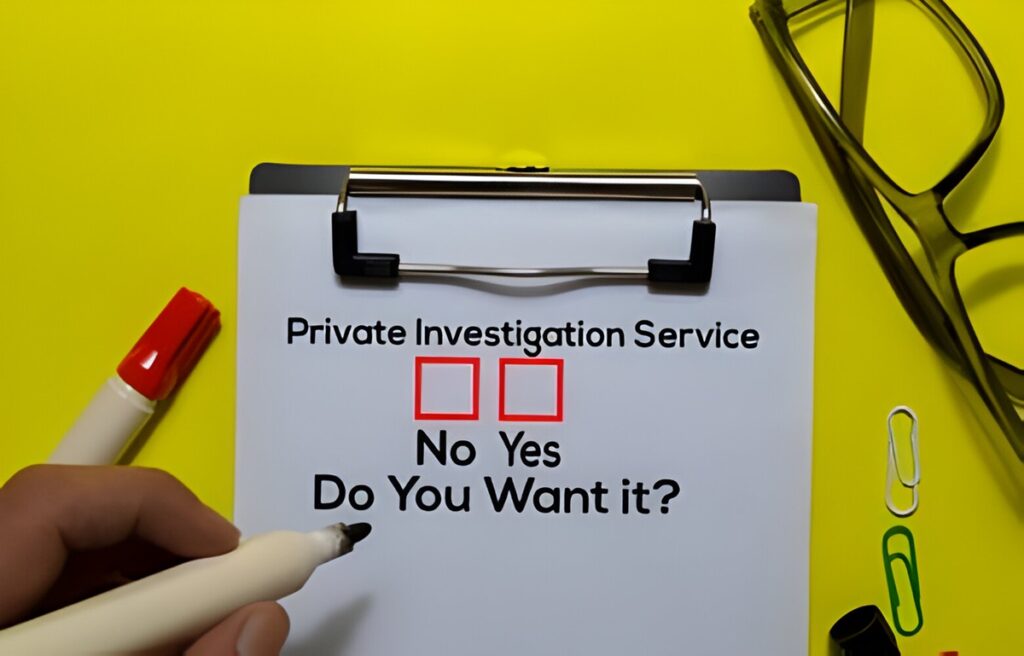
When you find yourself in need of a private investigator (PI), the process of selecting the right one can feel overwhelming. Whether it’s for a personal matter, business issue, or legal case, the choice of a PI can significantly impact the outcome. Here’s a simple guide to help you choose the right private investigator for your needs.
Understanding Your Needs
Identify the Purpose
First, clearly define why you need a private investigator. For residents in Kolkata and nearby areas, engaging a reputable private detective agency in Kolkata can provide localized expertise tailored to regional nuances. Common reasons include:
- Infidelity Investigations: If you suspect your partner of cheating, a PI can gather evidence to confirm or refute your suspicions.
- Background Checks: Whether for employment, personal relationships, or business partnerships, a PI can provide thorough background checks.
- Corporate Investigations: Businesses may need PIs to investigate internal fraud, embezzlement, or employee misconduct.
- Missing Persons: A PI can help locate missing persons, whether they are runaways, lost family members, or debtors.
- Fraud Investigations: PIs can investigate instances of insurance fraud, identity theft, or other types of fraud.
Knowing your exact needs will help you find a PI with the right expertise.
Determine the Scope
Consider the extent of the investigation:
- Local or International? Some cases may require local expertise, while others might need international reach.
- Short-term or Long-term? Determine if your case needs quick resolution or prolonged investigation.
- Depth of Investigation Required? Understand how deep you need the PI to delve into the matter.
This will influence the type of investigator and resources needed.
Researching Potential Investigators
Look for Experience
Experience is crucial in private investigation. Check:
- Years in Business: Long-established PIs likely have extensive experience and a proven track record.
- Specialization in Your Type of Case: Ensure the PI has relevant experience with cases similar to yours.
- Past Case Successes: Ask about their success rate and outcomes of similar cases they’ve handled.
Verify Credentials
Ensure the PI is properly licensed and insured:
- License: Private investigators must be licensed in most regions. Verify their license number with local authorities.
- Insurance: Check if they have liability insurance to cover any damages during the investigation.
Check Professional Affiliations
Membership in professional organizations can indicate credibility and commitment to standards:
- National Association of Investigative Specialists (NAIS): A well-known association providing resources and support for investigators.
- World Association of Detectives (WAD): An international body that promotes high standards in the profession.
- Local or Regional Associations: Membership in local groups can also be a positive sign.
Read Reviews and Testimonials
Look for reviews and testimonials from previous clients:
- Online Review Sites: Platforms like Yelp, Google Reviews, or specialized PI review sites.
- Investigator’s Website: Check for testimonials and case studies.
- Professional Forums: Investigative forums and networks can provide insights from peers and clients.
Conducting Interviews
Prepare Questions
Ask relevant questions to understand their capability and approach:
- What Is Your Experience with Similar Cases? Ensure they have handled similar cases successfully.
- Can You Provide References? Speak to past clients to gauge their satisfaction.
- What Methods Will You Use for My Case? Understand their investigation techniques and tools.
- What Are Your Fees and Payment Structure? Clarify costs and ensure transparency in billing.
- How Do You Ensure Confidentiality? Confidentiality is crucial; ensure they have measures in place to protect your privacy.
Assess Communication Skills
Effective communication is key. Evaluate:
- Clarity in Explaining the Process: They should clearly explain how they will handle your case.
- Transparency in Discussing Costs and Timelines: Honest and upfront about costs and expected duration.
- Promptness in Responding to Queries: Quick and responsive communication is essential.
Evaluate Professionalism
Professionalism can be a good indicator of reliability:
- Punctuality for Meetings: Being on time shows respect and reliability.
- Organized Presentation of Their Plan: A well-structured approach indicates thoroughness.
- Clear and Concise Communication: Ability to convey information effectively and straightforwardly.
Considering Costs
Understand the Fee Structure
Investigators may charge differently:
- Hourly Rates: Common for surveillance and ongoing investigations.
- Flat Fees: Often used for specific tasks like background checks.
- Retainer Fees: An upfront fee to start the investigation, with additional costs as the case progresses.
Make sure you understand how and when you will be billed.
Compare Prices
While it’s important to consider costs, don’t base your decision solely on price:
- Get Quotes from Multiple Investigators: Compare services and fees to get the best value.
- Assess Value for Money Based on Experience and Services Offered: Sometimes paying more for expertise and reliability is worth it.
Beware of Too-Good-To-Be-True Offers
Be cautious of significantly lower prices:
- Low Costs May Indicate Inexperience: Cheap rates might mean they lack experience.
- Hidden Fees Might Surface Later: Ensure there are no hidden charges that could increase costs unexpectedly.
Ensuring Compatibility
Trust Your Instincts
Personal comfort and trust are crucial:
- Do You Feel Comfortable Discussing Personal Matters with Them? You should feel at ease sharing sensitive information.
- Do You Trust Them to Handle Your Case with Integrity? Trust is essential for a successful working relationship.
Confirm Their Availability
Ensure they have the time and resources to dedicate to your case:
- Check Their Current Workload: A busy investigator might not give your case the attention it needs.
- Ask About Their Ability to Start Immediately: Make sure they can begin work on your case right away if necessary.
Making the Final Decision
Review All Information
Take time to review all gathered information:
- Compare Experience, Credentials, and Costs: Balance all factors to find the best fit.
- Consider Your Personal Impressions from Interviews: Your gut feeling and comfort level matter.
Check for Red Flags
Be aware of warning signs:
- Unclear or Evasive Answers: They should be transparent and straightforward.
- Lack of Proper Licensing or Insurance: This is non-negotiable for legitimacy.
- Negative Reviews or Unresolved Complaints: Past issues with clients can be a red flag.
Make Your Choice
Choose the investigator who best meets your criteria and gives you confidence in their abilities:
- Trustworthy and Professional: Reliability and integrity are key.
- Experienced and Knowledgeable: Their expertise should align with your needs.
- Transparent and Communicative: Clear communication and honesty are essential.
Conclusion
Choosing the right private investigator is a critical step in resolving your case successfully. By understanding your needs, conducting thorough research, interviewing potential investigators, and considering costs and compatibility, you can make an informed decision. Remember, the right PI can make all the difference, so take your time and choose wisely.
